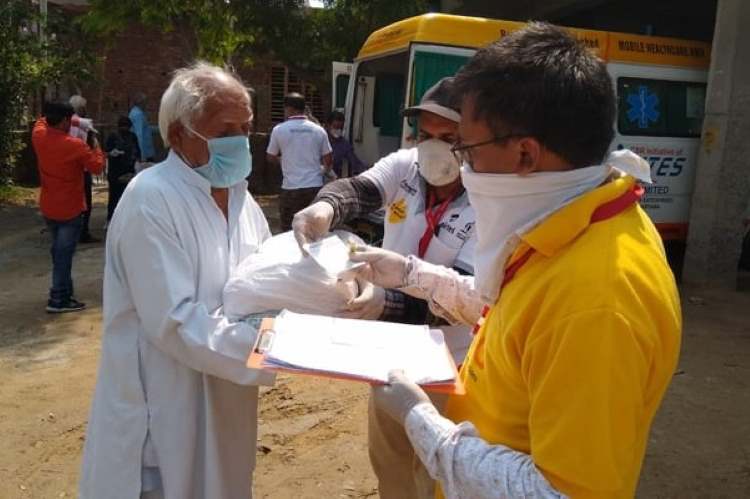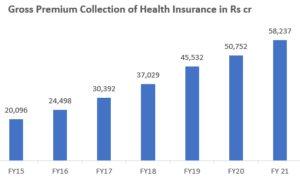
The Insurance Regulatory and Development Authority of India has decreed the removal of age barriers in health insurance policies in an important move towards universal healthcare coverage. This revolutionary decision by IRDAI marks a significant departure from the constraints that excluded senior citizens above 65 from acquiring new health insurance policies. The objective is to enhance healthcare penetration and provide equitable health coverage across all age demographics.
IRDAI has instructed insurers to design products for senior citizens, students, children, and maternity. It also asked insurers to offer policies for persons with all types of existing medical conditions, according to a Gazette notification containing specific provisions applicable to health insurance products.
Historically, health insurance companies in India implemented an internal cutoff at age 65, refraining from offering policies to older adults primarily due to the higher risks and medical costs associated with this group. This approach left a substantial portion of the population, notably those most susceptible to ailments, without crucial health insurance coverage when they needed it the most.
READ I Hunger pangs: Global crisis demands action, not innovation
IRDAI notification explained
The directive by IRDAI is a response to these challenges. By compelling insurers to cater to all age groups, including the elderly, and to those with severe medical conditions such as cancer and renal failure, IRDAI is pushing for a more inclusive insurance system. This move is expected to not only increase the customer base for insurance companies but also foster competitive pricing and improve service offerings. Furthermore, the IRDAI has made strides in reducing the waiting period for coverage of pre-existing conditions from 48 to 36 months, thereby accelerating the accessibility of crucial medical care to policyholders.

Recognising the distinctive needs of older adults, IRDAI’s directive also encourages innovation in product development tailored to the elderly. Insurance providers are now tasked with designing comprehensive policies that address the unique health concerns prevalent in this demographic, such as chronic diseases and the need for frequent medical care. This shift is expected to spur a variety of health insurance products that are not only financially viable but also encompass a broader range of medical services, ensuring that senior citizens receive the preventive care and treatment they require.
The health insurance challenge
Despite the progressive nature of this policy, it is not without challenges. Insurance companies now face the task of recalibrating their pricing models to accommodate the elevated risk presented by older policyholders. Accurate premium setting for senior citizens, coupled with ensuring sufficient coverage without prohibitive costs, requires a delicate balance. Moreover, the industry must streamline its medical underwriting processes and enhance claim handling specifically tailored for this demographic.
To ensure that the new policies are not only introduced but also effectively implemented, stringent regulatory oversight will be essential. IRDAI must establish robust mechanisms for monitoring compliance and enforcing the new rules. This includes regular audits of insurance companies, stringent penalties for non-compliance, and a responsive system for consumer complaints to ensure that the rights of policyholders are protected and the objectives of these regulatory changes are fully realised.
Furthermore, with the new regulations in place, there arises a need for enhanced consumer awareness and support. The IRDAI’s decision highlights the importance of educating potential policyholders about their rights and the new opportunities available to them. Insurers are encouraged to undertake extensive outreach and education campaigns to ensure that senior citizens are well-informed about the benefits and provisions of newly available insurance products. This effort is crucial in mitigating the historical information asymmetry that has often left older adults at a disadvantage in securing adequate health coverage.
IRDAI’s removal of the age cap in line with a global trend towards introducing innovative health insurance solutions that cover all ages and conditions. India can draw lessons from international experiences to avoid pitfalls. For instance, enhancing digital infrastructure to support seamless policy management and employing data analytics for better risk assessment can mitigate some of the challenges associated with these changes. Furthermore, India could consider establishing a centralised system to handle claims and grievances more effectively, akin to proposed reforms in the US.
The IRDAI’s bold decision is a welcome step towards dismantling age-related barriers in health insurance, potentially setting a precedent for other nations grappling with similar issues. As India moves towards a more inclusive healthcare environment, continuous monitoring, adaptive strategies, and international collaboration will be crucial to overcoming the hurdles. This policy not only reflects a commitment to health equity but also demonstrates a significant shift towards a system where healthcare accessibility is a fundamental right, not a privilege dictated by age.
